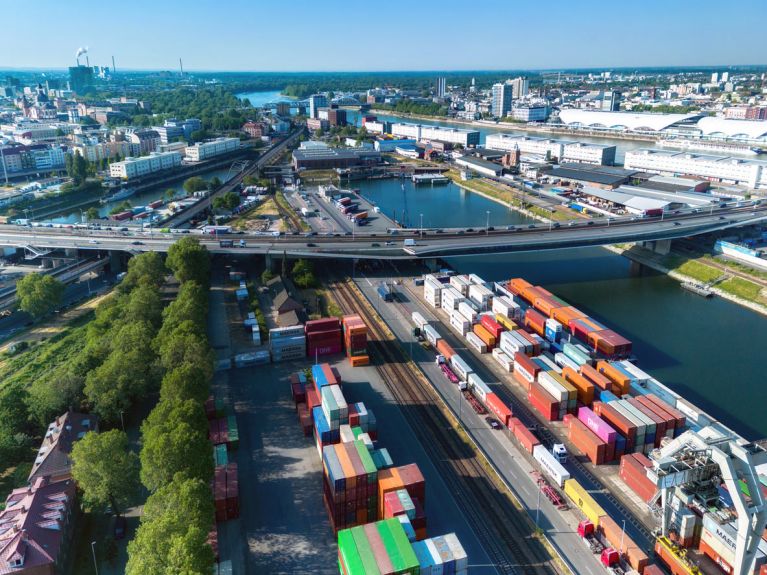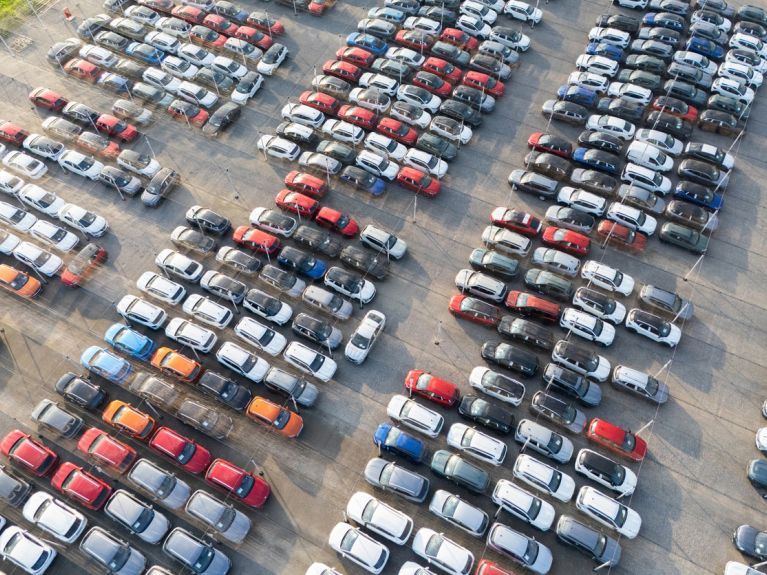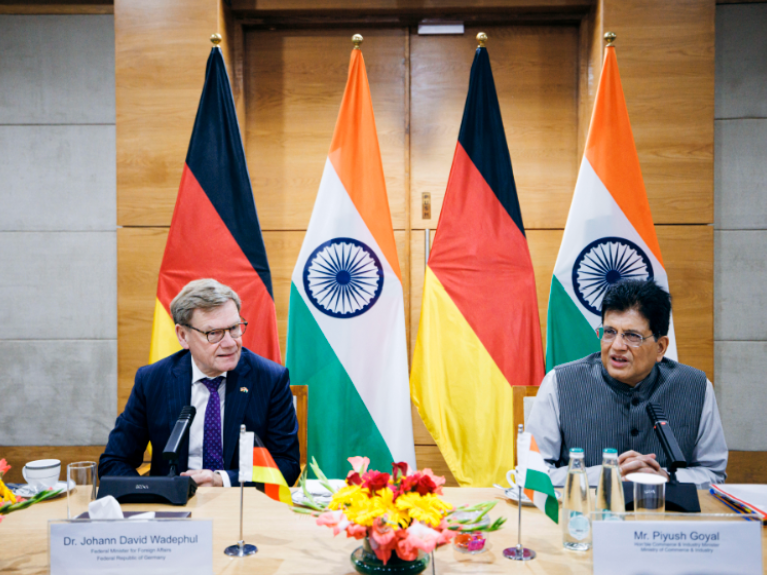Free trade – the foundation of economic success
Through the Mercosur deal the EU aims to create a huge marketplace. Further deals are in the works, such as an agreement with India. Brussels and Berlin are working to promote greater free trade.

For Ursula von der Leyen, President of the European Commission, it represents a “milestone” which will reaffirm the European Union’s position as the “world’s greatest trading bloc”. She was speaking about the ratification of the Mercosur free trade agreement. After decades of negotiations, the EU states and the European Parliament are now expected to give their assent to the treaty with Brazil, Argentina, Uruguay and Paraguay by the end of 2025. It would then be easier for the Mercosur states (Mercosur stands for “Mercado Común del Sur”) to benefit from products such as cars and car parts, machinery, and chemical and pharmaceutical products. Germany is one of the leading producers of such goods. In return, Germany and the other EU states are committed to opening up their markets to agricultural products such as meat, soya and other foods, giving the Mercosur nations access to the huge EU market for their agricultural goods and certain industrial products – a win-win situation for all the partners involved.
However, critics are warning of unequal standards in areas such as environmental and labour regulations. Nevertheless, the proponents of the agreement have strong arguments, too. “The agreement will create a common economic area with over 700 million people, giving a significant boost to economic growth, employment and prosperity in both regions,” says Wolfgang Niedermark, who represents the Federation of German Industries (BDI).
Large numbers of jobs in Germany depend on exports
Trade agreements such as the treaty with Mercosur are of enormous importance to Germany. Just under one-third of all jobs depend directly or indirectly on exports, a figure which rises to 56% in the manufacturing sector, where Germany exports around 50% of its products. These agreements unlock markets for German businesses by removing tariffs and other barriers to trade and providing a secure legal framework. Given the trend towards greater protectionism in recent years, such agreements are an important tool to promote free trade, as each country should supply the goods it is able to produce most efficiently and at the highest quality, and trade those with other countries. They also make it easier for businesses to collaborate internationally, share expertise and boost competitiveness.

Germany: the export-focused economic powerhouse
Germany has a long history of excellent experiences with trade agreements, such as the deal for a German Customs Union in 1834 which laid the foundations for the growth in prosperity among the states of the German empire. After the Second World War, membership of GATT – which would later become the World Trade Organization – allowed Germany to become a strong and internationally respected trade partner. And a recent study has reaffirmed that the “Made in Germany” badge enjoys an excellent reputation around the world. Trade agreements also form the foundation of the European Union. Thanks to numerous treaties and trade agreements with partners around the world, Germany has climbed to third place among the world’s leading economic powers. In 2024 German exports were worth €1,556 trillion, set against imports amounting to €1,317 trillion, yielding a foreign trade balance surplus of over €239 billion.
The USA is Germany’s most important trading partner
With a foreign trade revenues (the sum of imports and exports) worth €253 billion, the USA was Germany’s most important trading partner in 2024 for the first time since 2015. China held second place, with revenues worth €246 billion. This is why the agreement in principle reached between the EU and US in the summer of 2025 to limit tariffs and promote trade is so significant. “The economies of Germany and the USA are closely bound together. Reliable and good trade relations with the US are of great importance to our businesses,” says Minister for Economic Affairs Katharina Reiche.
Of course, other countries are also important partners for Europe, as European companies do 80% of their business with countries other than the USA. For that reason, the EU has so far signed over 40 free trade agreements with over 70 countries and regions.

Further agreements are planned, such as the deal with India
The Mercosur agreement isn’t the only deal on the table. Negotiations are underway with countries such as South Africa, Malaysia and the UAE. In the case of India, European Commission President von der Leyen has announced that a deal is expected to be signed before the end of 2025. With a population of 1.46 billion, India is now the world’s most populous nation, and holds huge significance to the 6,000 European businesses that already operate there – and the many others which are keen to do so. For India, a deal with the EU promises benefits such as lower tariffs on labour-intensive goods such as textiles and IT hardware, as well as cheaper imports of machinery and green technology. The German Foreign Minister Johann Wadephul and a delegation of business leaders visited India in early September 2025, during which he emphasised that “If we want to take our economic relations to the next level, we need to conclude the planned free trade agreement between India and the EU as soon as possible. Germany is working hard to achieve this.”
Wadephul’s trip also included a stop in Indonesia, where he called for closer economic relations with Germany. With a population of over 280 million, the South-East Asian country has become an attractive place to do business. The EU and Indonesia have very recently concluded negotiations on a business and investment agreement. “By signing the deal today, the EU and Indonesia are sending out a strong message to the world,” said EU Trade Commissioner Maroš Šefčovič. “We stand united in our commitment to open rules-based and mutually beneficial international trade,” he added.


